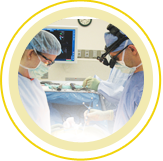Just like many medical procedures, hearing the term “spinal fusion” can immediately cause concern and fear in someone due to the unknown. Instead of taking time to Google horror stories and cause your brain to create all sorts of scenarios, we’ve compiled a few fast facts about spinal fusion that may help ease your mind.
Simply put, a spinal fusion is a procedure in which small bones in the spine, known as vertebrae, are fused together in order to heal into a stronger, more solid bone. After the procedure, a patient may experience much less pain and a wider range of motion than before. But what more should you know about a spinal fusion?
Most Will Lead a Normal Life After Surgery
There is certainly a good deal of recovery after a spinal fusion, so this is not going to be instantaneous, but most people can expect to get back to their normal activities after the procedure without pain. After learning how to do things like sitting and standing, you will work with a physical therapist to regain motion. However, this process will depend on the level of your spinal fusion, so it’s best to consult with Max W. Cohen, MD, FAAOS or Ruben Torrealba, MD at Spine & Scoliosis Specialists to understand your limits after surgery.

Fusions May Not Be As Invasive As You May Think
Again, this is very dependent on the level of your procedure, but your spinal fusion may not require as many incisions as you may expect. Minimally invasive spinal fusions will bypass the large incision on your back and through the thick spinal muscles, and actually maneuver tools through the muscles to reach the vertebrae. This can ultimately result in a quicker recovery period.
A Spinal Fusion Is Not a Fix For Your WHOLE Spine
A fusion is not often the first recommended procedure, nor is it always the last. But, it’s never a procedure that will fix your entire spine. Arthritis will continue to progress naturally, and a spinal fusion will simply alleviate the pain in specific areas.
There Are Risks
As with any procedure, there are certainly risks associated with a spinal fusion that will be discussed with your doctor. Nerve damage, blood clots, infection, and recurring pain are all issues that may arise after your procedure, so it’s important that you pay close attention to anything your surgeon says. Doing so will prevent you from having further procedures to correct any issues, and will speed up your recovery time!
For any further questions about spinal fusions, please contact Spine & Scoliosis Specialists today at (336) 333-6306 to speak with Max W. Cohen, MD, FAAOS or Ruben Torrealba, MD!



